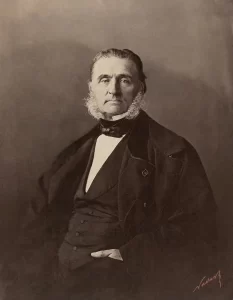Trousseau Syndrome
Trousseau syndrome are recurrent migratory superficial thrombophlebitis in the context of occult visceral cancer. Recurrent means that it is not the same clot extending, but a new clot. Migratory means the clot is in a new location, not in the same vein. Interestingly, there is not one definition of Trousseau syndrome that we can all agree upon. Authors have used this term to describe venous and arterial clots as well as clots associated with specific types of cancer, such as pancreatic or lung cancer.
Armand Trousseau
Armand Trousseau was a French internist who lived in the 19th century. He made several contributions to medicine. But perhaps most famously he described a form of migratory thrombophlebitis that is associated with occult visceral cancer. Sadly, he described this syndrome in 1865, only to diagnose it in himself two years later. As an aside, he died of gastric cancer, which is also a possible cause of cancer related clots.

Trousseau Syndrome: Cancer Related Thrombosis
We have written elsewhere on the site about cancer and blood clots. Obviously, Trousseau syndrome is a sign of cancer related hypercoagulability. While common, the mechanism is still a matter of debate. Clinically, deducing that a patient has cancer from the migratory thrombophlebitis is not always easy. In fact, while cancer can be the first sign of malignancy, most guidelines recommend against non-discriminatory screening for cancer in patients with unprovoked clots. Indeed, sometimes, we will notice a patient has migratory thrombophlebitis only after knowing they have cancer. But if a patient presents with migratory thrombophlebitis and signs suspicious of a particular malignancy, we should be vigilant. For instance, if they have sudden onset diabetes in conjunction with the clots we should think of pancreatic cancer.



